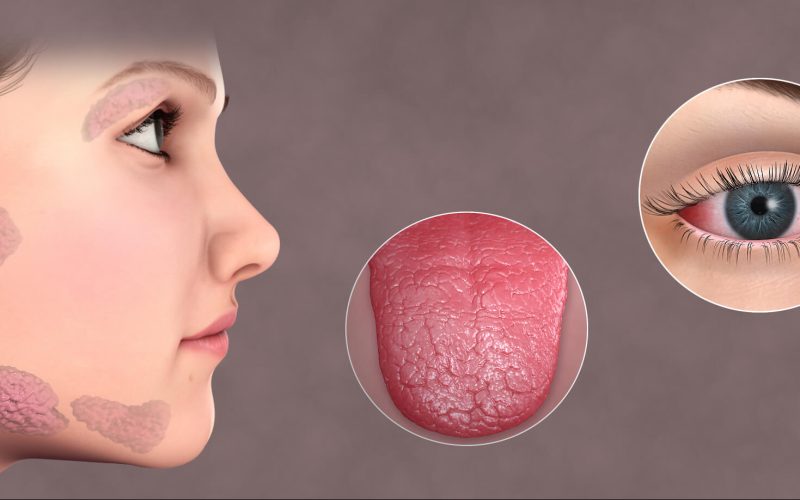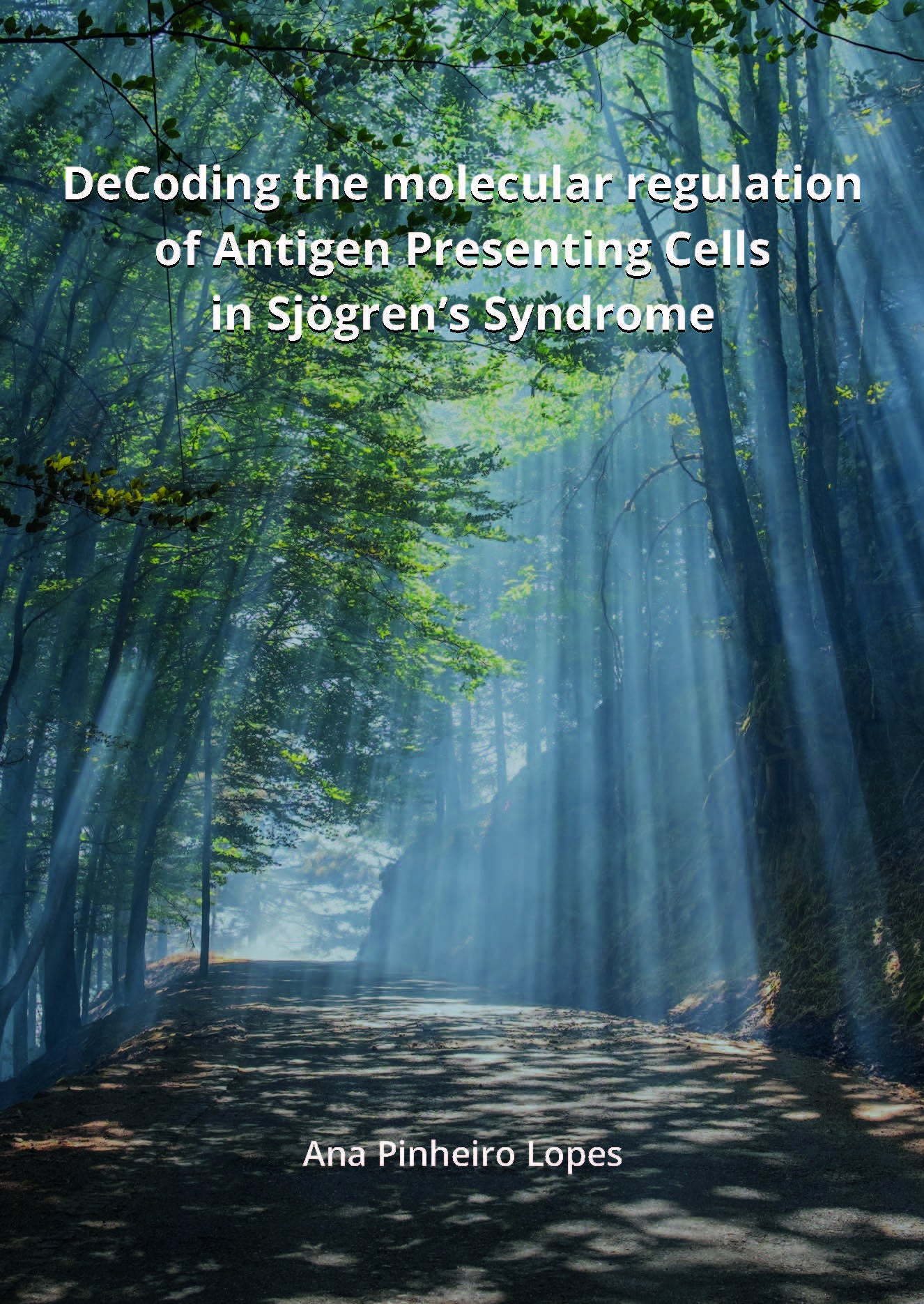A population of rare immune cells (type 2 conventional dendritic cells) are altered in Sjögren patients as well as in non-Sjögren sicca patients, and they have an important contribution to the disease. In addition, it was found that monocytes are affected and reshaped by the disease environment. These are the main findings of the PhD research by Ana Pinheiro Lopes at UMC Utrecht who defended her thesis on November 1, 2022.
Sjögren syndrome is a chronic systemic autoimmune disease whose main features are dryness of eyes and mouth as consequence of abnormal function and destruction of the secretory glands. For unknown reasons, the immune system overreacts and attacks the patient’s own body as well as invades the salivary and lacrimal glands, causing dry eyes and mouth. As current treatments mainly focus on relieving symptoms, Sjögren patients are therefore in need of better therapeutic options. By improving the knowledge of the key processes involved in this disease, it is considered that patients will have a better chance of receiving optimal treatment. Therefore, Ana Pinheiro Lopes (Center for Translational Immunology and Department of Rheumatology & Clinical Immunology, UMC Utrecht) investigated systemic and epigenetic regulators in primary Sjogren Syndrome (pSS), their contribution to various immune cells and molecular mechanisms that drive immune cell activation.
In this thesis, Ana Pinheiro Lopes aimed to identify and explore novel paths behind the abnormal immune system activation observed in patients with pSS or non-Sjögren’s sicca. Her studies mainly focused on a rare immune cell population (type 2 conventional dendritic cells or cDC2s), which is an important initiator of immune activation. In addition, her studies confirmed that monocytes are also affected, and reshaped by the disease environment.
The insights of this work reveal different levels of epigenetic, transcriptomic and functional dysregulation in cDC2s and monocytes from pSS patients, which significantly increases the understanding of their contribution to immune cell activation and salivary gland dysfunction.
“The results of my studies bring us one step closer to understand how the immune system is altered in patients with Sjögren Syndrome and give us new clues to develop novel therapeutics. Moreover, an adequate patient characterization is essential and it will eventually contribute to effective personalized medicine”, concluded Ana Pinheiro Lopes.
Ana Pinheiro Lopes (1989, Manteigas, Portugal) defended her PhD thesis on November 1, 2022 at Utrecht University. The title of her thesis is “DeCoding the molecular regulation of antigen presenting cells in Sjögren’s Syndrome.” Supervisors were prof. dr. Timothy Radstake (Center for Translational Immunology, UMC Utrecht, now at Abbvie, Chicago IL, USA) and prof. dr. Floris Lafeber Department of Rheumatology & Clinical Immunology, UMC Utrecht). Co-supervisor was dr. Joel van Roon (Department of Rheumatology & Clinical Immunology, UMC Utrecht). In October 2022, Ana started as a postdoc at Princess Máxima Center for Pediatric Oncology in Utrecht, studying the role of novel tumor-specific peptides for immunotherapeutic applications in childhood cancer.

